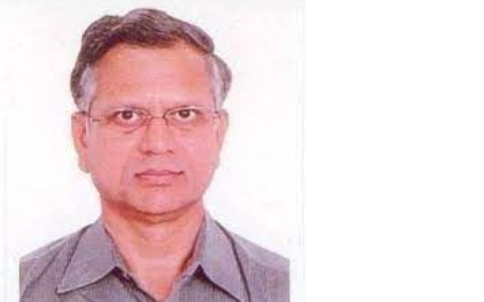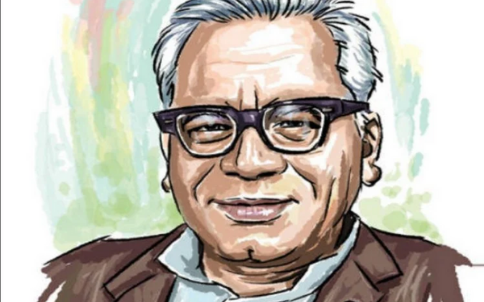
P. NIROOP,
Advocate,
Supreme Court of India, New Delhi
E-mail: [email protected]
On 12th October 1967, Indian democracy mourned the death of its champion, if not its prophet, upon the unfortunate demise of Dr. Ram Manohar Lohia, more due to negligence of the doctors attending on him at the Government Wellington Hospital, Delhi, than due to any other extraneous reason. It may not be appropriate to go into the ‘conspiracy theory’ here, but if one were to read between the lines, the contents of the last chapter, which gives a day-to-day account of the declining health of Lohia from 1st October, until he passed away on 12th, in Dr. Lohia’s biography by Smt. Indumati Kelkar, a close associate of Lohia, one would be left in no doubt, as to how the State allowed him to die, due to utter indifference and negligence. In other words, metaphorically, it was the death of the democracy itself.
The irrepressible democratic spirit of the man even on the death bed is clear from his utterances. Here are a few examples:
- Lohia insisted that his health condition should not be discussed and reminded those around him, that in foreign countries, it is a customary not to discuss the illness of their leaders. In fact, it was not in his nature to discuss with others about his own health.
- Earlier on, he refused to get admitted into a private hospital, and instead got himself hospitalized into a Government run Wellington Hospital, Delhi, in order to avoid the costly affair at a private hospital in Bombay. It may not be out of place, to mention that he was opposed to separate schools for the children of rich & poor, abolition of classes in the railway compartments and insisting on halting only at Government dak-bungalows, when touring the remote parts of the country.
But what is the net result of this – he died like a commoner. Surely this was not the way to loose a prophet of democracy, who could have made a difference to the democratic fate of India, had he lived a little longer. He had proved his democratic credentials to the hilt, when the led the SVD (Samyukta Vidhayak Dal) coalitions in 6 or 7 States in the 1967 General Elections. In his passing away, the loss was not his, but definitely that of the nation aspiring toward democratic socialism.
While ruminating on the life of Dr. Lohia and the democratic spirit, which he embodied in thought, word and deed, one cannot but remember two other personalities i.e. M.N.Roy & Jayaprakash Narayan. Lohia differed with Roy on his concept of partyless democracy, but had immense respect for his democratic philosophy of ‘radical humanism’. Although J.P. and Lohia were together in the Congress Socialist Party before J.P. moved to Sarvodaya, they have differed on certain fundamental issues and even parted ways. But it is not sheer coincidence that J.P. from 1974 to 1977 (Janata Experiment) donned the same role that Lohia had assumed, during the SVD coalition experiment after the 1967 General Elections.
It is magnanimous of Jayprakash Narayan to have commented in 1978 in the following words, which sums up their much misunderstood relationship between him and J.P.
“Rammanohar was very much misunderstood by his contemporaries. Perhaps his ideas were too original to be understood fully while his straightforwardness was unpleasant to many. He tried to shape Indian politics according to his light. But, unfortunately he died just when he seemed to be succeeding. Lohia was very close to me ideologically, although we had drifted apart politically. This is why all those who were inspired by his ideas were later easily drawn to my movement for total revolution.”
What is of great relevance to the Telangana region is the special place that Hyderabad, had in his heart and in the scheme of things? In fact, one of the four seminal works of Lohia i.e. The Wheels of History, were talks delivered on the Nizam College grounds at Hyderabad, later published by Samata Nyas, Hyderabad, alongwith the other books namely- (a) Marx Gandhi Socialism (b) The Caste System and (c) Guiltymen of India’s Partition etc. Thus Hyderabad became a centre for the publication of Lohia-socialist literature, disseminating the socialist message across the country.
The story of Lohia in Hyderabad is not complete without mentioning a few names especially that of late Badri Vishal Pitti, son of a financer to the Nizam, which many misunderstood, as ‘Bade Baap Ka Bade Beta’ but when one goes through the volume brought out on him, after his death, one is convinced that he was actually a ‘born-socialist’, though with a silver spoon in his mouth. He was in fact ‘Bade Baap Ke Sahi Bete’. Lohia always sojourned at Pitti’s palatial bungalow in Somajiguda whenever he was in Hyderabad. The other Lohia Ambassador to the Student Community of Osmania University, was the English teacher, late Keshav Rao Jadhav, who played a sterling role in the separate statehood movement of Telangana. This list can run into several pages, as anybody who met Lohia even once, was hooked for life not only to the great personality with a razor sharp mind, but also to socialism and democracy. Only a nation which cultivated syncretism all through history, could alone given birth to such a ‘syncretic mind’ such as Ram Manohar Lohia’s who combined in his ‘Weltanschauung’ the seemingly divergent perceptions of Marx and Gandhi, thus coming up with a syncretic philosophy of ‘democratic socialism’.
The lessons learnt from the SVD experiment of 1967, under the leadership of Ram Manohar Lohia and the Janata experiment of 1977 under Loknayak J.P. Narayan was that every generation has to fight to protect its fundamental rights resounding thereby Voltaire’s clarion call during the French revolution that ‘Eternal Vigilence is the price of Liberty’.
As against the said Himalayan peaks of Democratic Socialism as embodied in the lives of Ram Manohar Lohia, M.N.Roy and Jayprakash Narayan, what we find today, around us, across the globe and more particularly in India, is that majoritarian democracy and populism have come to substitute the truly democratic traditions embodying the will & aspirations of the people.
The unimitable Bertolt Brecht, exclaimed that ‘All power comes from the people, but where does it go?’ Once again this may not be the context, to dilate on the issue of democracy vs. populism. But suffice it to say that the following features are characteristic of a populist governance, which is antithetical and opposed to democracy.
- Hijacking the State apparatus and corrupting it to the core through electoral politics.
- Indiscriminate distribution of material benefits and bureaucratic favours for electoral support.
- Brutal suppression of civil society and treating the political opponents as enemies of the people.
A populist regime is always presided over by an authoritarian, who asserts that ‘he is the people’ based on the popular support he got at the hustings, and ironically all this, in the name of the people, which has come to mean three things since Greek & Roman times i.e. (1) the people as the body-politic (2) common people (3) the nation as a whole.
On this sombre occasion of observing the death anniversary of Lohia and remembering him as an ‘icon of democratic politics’, let us rededicate ourselves to democracy as a philosophy and a way of everyday political life and flush the populist regime, flaunting as the representative of the people while it is far off, the real people or the silent majority. The power has to shift from the elected representatives back to the people, only then will true Democracy be established or re-established.
(54th Death Anniversary of Dr. R.M.Lohia on 12 October 2021)




